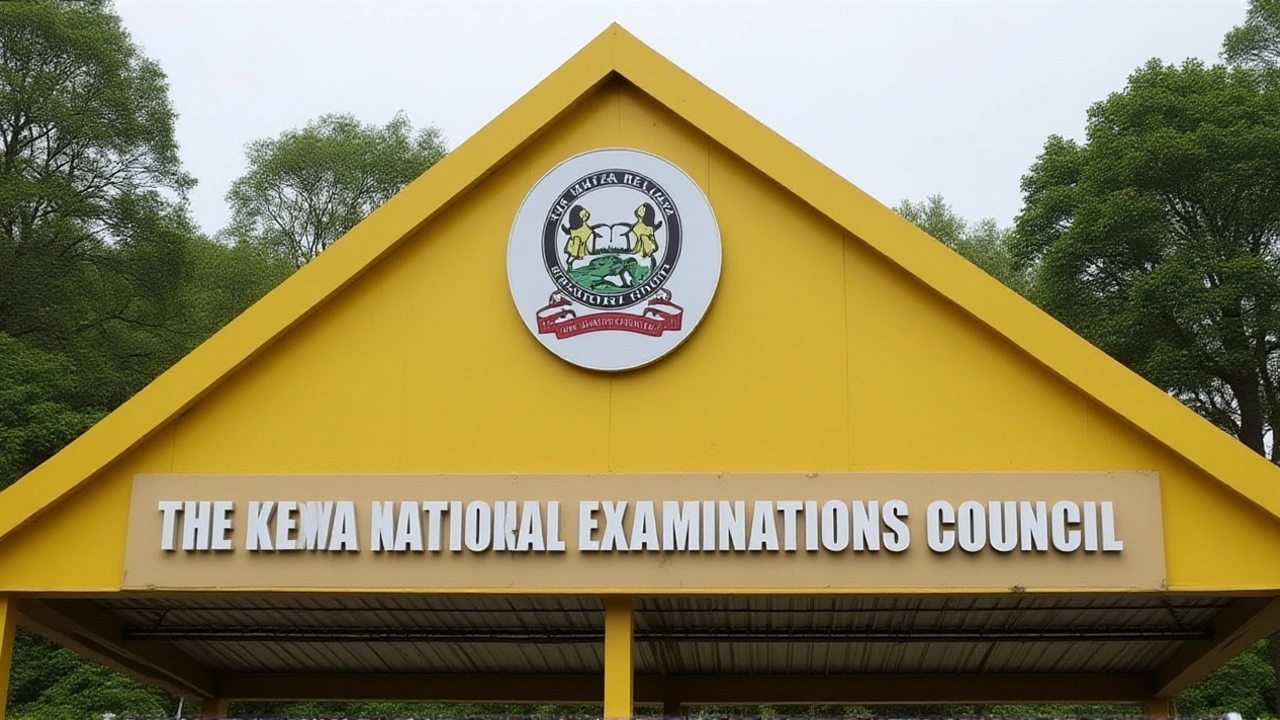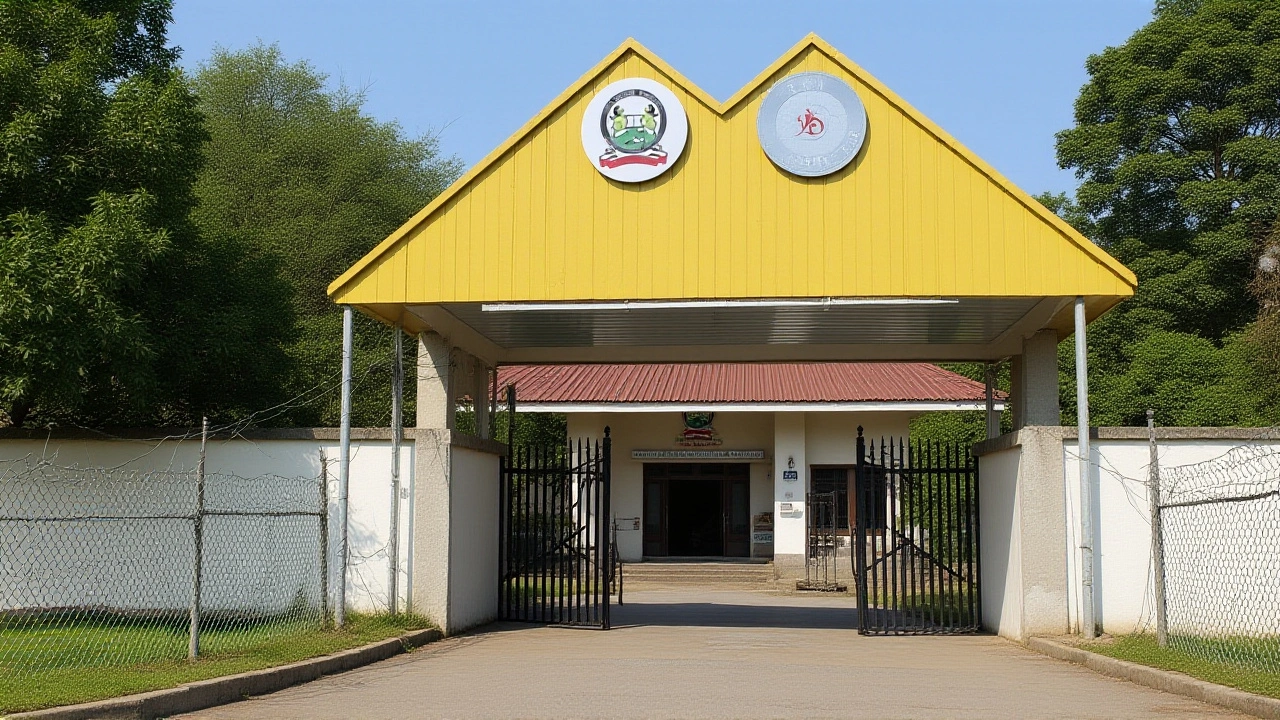KNEC Demands Online‑Only KCSE Registration, Warns of Ghost‑Student Crackdown
 Oct, 13 2025
Oct, 13 2025
When Kenya National Examination Council (KNEC) released a fresh circular on , it left no room for doubt: the 2025 Kenya Certificate of Secondary Education (KCSE) registration will be conducted strictly online. The move, announced just days after the registration window opened on , means every school in Kenya must log into the council’s portal with their official examination‑center credentials. Failure to comply, KNEC warned, could see schools stripped of their centre status – a penalty that would cripple any institution’s ability to sit pupils for the national exam.
Why KNEC is Going Fully Digital
Historically, KCSE registration resembled a chaotic road‑market: paper forms shuffled between schools, sub‑county offices, and the council’s head office. That old system invited errors, lost paperwork, and, most concerningly, the insertion of “ghost” candidates – students who never actually attended school. By forcing the process onto a single, 24/7 online platform, KNEC hopes to nail down data integrity and slash the administrative burden that has long plagued Kenyan schools.
What the New Rules Look Like on the Ground
The circular, addressed to sub‑county directors of education and school principals nationwide, spells out a six‑week deadline – – for completing all entries. Here’s a quick rundown of the must‑do items:
- Only principals can submit registrations for their schools. The council framed them as the "directly responsible officers" for each candidate.
- Each candidate’s name must match exactly what appears on their Kenya Certificate of Primary Education (KCPE) certificate, along with gender, birth year, citizenship and the appropriate entry code (first, second or third attempt).
- A passport‑size photograph is uploaded once and cannot be changed after the deadline – a safeguard against identity swapping.
- Any attempt to register non‑existent students is labeled “examination malpractice” and carries the threat of de‑registration as a KNEC centre.
Private candidates, including repeaters, are routed differently: they must visit their local Sub‑County Directors of Education (SCDE) offices. KNEC assures repeaters that as long as they can prove a prior KCSE registration, they are free to re‑enter the exam, regardless of how many years have passed.
How Schools Are Reacting
Principal John Mwangi of St. Mark’s High in Nairobi told reporters, “We’ve been prepping for this shift since the council hinted at a digital rollout last year. The portal is user‑friendly, but the pressure is on to clean our student registers before the deadline.”
Conversely, heads of several rural schools expressed concern over unreliable internet connectivity. “Our village only gets broadband for two hours a day,” lamented Ms. Aisha Kariuki, principal of a secondary school in Kisumu County. She added that the council’s promise of 24/7 access hinges on schools having the right infrastructure – an issue the Government of Kenya has yet to fully address.

Potential Impact on the Examination Landscape
Beyond the obvious administrative advantages, the online‑only rule could reshape how Kenyan pupils view the KCSE. Accurate data means fewer mismatches between exam results and certificate details, which in turn reduces the likelihood of disputes during university admissions. Moreover, the crackdown on ghost candidates aims to level the playing field: schools that previously slipped in extra seats to boost funding will now face stricter oversight.
On the flip side, the penalty of losing centre status is severe. A school stripped of its KNEC registration hub must send its students to a neighboring centre, potentially adding travel costs and logistical headaches. For schools already operating on thin margins, that could be a financial blow.
What Comes Next: Monitoring and Enforcement
KNEC said it will run automated validation checks on the data submitted via the portal. Any anomalies – such as duplicate photos or mismatched birth years – will trigger a manual audit by the council’s compliance unit. Schools flagged during the audit will receive a formal notice, and if they fail to rectify the issues within 48 hours, the council may proceed with de‑registration.
Education officers at the sub‑county level are also being briefed on the new procedures. The council plans a series of webinars in early March to guide principals through the portal’s features and answer last‑minute questions. Those who miss the deadline will have to wait until the next registration cycle, typically a year later.

Background: The Evolution of KCSE Registration
The KCSE, first introduced in 1989, has long been the culminating exam for Kenyan secondary students. Over the decades, the registration process has shifted from paper‑based forms sent by mail to a hybrid system that combined online entry for schools and in‑person visits for private candidates. The push for a fully digital approach gained momentum after the 2020 pandemic exposed the fragility of paper processes.
In 2023, KNEC piloted an online portal in three counties – Nairobi, Mombasa and Kisumu – reporting a 30% reduction in registration errors. Buoyed by those results, the council decided to roll the system out nationwide for the 2025 cohort, coupling it with stricter penalties for malpractice.
Key Takeaways for Stakeholders
- School principals must log into the KNEC portal using their centre credentials and verify every candidate’s details before March 28.
- Any attempt to register non‑existent students will be treated as criminal misconduct, potentially leading to loss of examination centre status.
- Private and repeat candidates should head to their local SCDE offices with proof of prior KCSE registration.
- Schools lacking reliable internet should coordinate with the Government of Kenya for alternative access points before the deadline.
- Compliance audits will commence immediately after the registration window closes, with swift enforcement actions for violations.
Frequently Asked Questions
How does online‑only registration affect private candidates?
Private candidates, including those retaking the KCSE, cannot use the school portal. They must register in person at their local Sub‑County Directors of Education office, presenting proof of earlier KCSE registration. The online system is reserved for institutions only.
What are the consequences for schools caught registering ghost students?
KNEC classifies the act as examination malpractice. Penalties range from fines to the outright de‑registration of the school as an official KCSE centre, meaning its pupils would have to sit exams at another school's centre.
What data must be entered for each candidate?
Names must match the KCPE certificate, plus gender, year of birth, citizenship status, entry code (first/second/third attempt) and a passport‑size photo that cannot be altered after the March 28 deadline.
Are there any support measures for schools with poor internet access?
The Government of Kenya has pledged to set up temporary registration kiosks in underserved areas and to run training webinars for school staff. However, the rollout schedule is still being finalised, so schools are urged to contact their county education office ASAP.
When will the KCSE exams themselves take place?
The main KCSE examinations are slated for November 2025, with results expected in February 2026. The online registration deadline ensures all candidate information is locked well before the testing window.

Naman Patidar
October 13, 2025 AT 23:15Online‑only registration sounds like more hassle for schools already struggling.
Vinay Bhushan
October 14, 2025 AT 02:08Honestly, this is a step in the right direction. Schools will finally have a clear paper trail and the chance to clean up their registers. The portal may look intimidating at first, but with a bit of training, principals can get the hang of it. It's also a great way to cut out those ghost students that have been inflating numbers for years. Keep pushing forward, everyone – the effort now will pay off when results are more trustworthy.
Parth Kaushal
October 14, 2025 AT 05:20The announcement of a fully digital KCSE registration feels like the dawn of a new era, a digital renaissance sweeping across the Kenyan education landscape. No longer will administrators be shackled to mountains of paper, drowning in ink‑stained forms that slip through the cracks of bureaucracy. Each click on the KNEC portal represents a promise: a promise that every student counted truly exists, that no phantom names will haunt the final tallies. Imagine the quiet satisfaction of a principal finally seeing a pristine, error‑free register, each entry verified against a single, immutable database.
Yet, this promise carries weight. In rural corners where the internet is a fickle guest, the very tool designed to liberate can become a chain. Two hours of connectivity a day may be enough for a few hurried uploads, but not for the meticulous verification of every photograph, birth year, and entry code. The stakes are real: a missed deadline could strip a school of its centre status, turning the dream of digital efficiency into a logistical nightmare.
Still, the spirit of innovation cannot be ignored. The automated validation checks, the swift audits, the potential for real‑time error correction – these are milestones that could reshape not only KCSE but the entire fabric of educational administration in Kenya. When the dust settles, the schools that adapt will find themselves on firmer footing, their data clean, their reputations bolstered. Those left behind may face harsh penalties, but perhaps that harshness is the catalyst needed to drive nationwide digital equity.
In the end, this shift is more than a policy update; it is a cultural transformation, a collective step towards transparency, accountability, and progress. The journey will be fraught with challenges, but the horizon looks undeniably brighter.
parvez fmp
October 14, 2025 AT 08:23Yo, this whole online thing is lit 🔥 but fr, schools with sketchy internet are gonna feel the heat. Gotta set up those kiosks ASAP or else the whole system lol. I mean, who wants to be stuck waiting for two hours of wifi? 🙄
s.v chauhan
October 14, 2025 AT 11:26While the digital rollout is promising, we must remember the reality on the ground. Rural schools need concrete support – not just promises – to ensure they can meet the deadline without jeopardizing their status. A mixed approach, combining temporary registration hubs with targeted bandwidth upgrades, could bridge the gap. Let's keep the conversation focused on actionable solutions.
abhinav gupta
October 14, 2025 AT 14:30Sure, KNEC thinks a portal will fix everything but they forget the digital divide many schools face. The idea sounds neat but execution will be messy. They should pilot more regions before a full rollout.
vinay viswkarma
October 14, 2025 AT 17:33Honestly, this is just another bureaucratic hurdle. Schools will find ways around it as always.
sanjay sharma
October 14, 2025 AT 20:36For clarity, the portal requires each photo to be uploaded once and cannot be changed after the deadline. Ensure the image meets the size specifications before submitting.
varun spike
October 14, 2025 AT 23:40The requirement that principal credentials be used for submission underscores the accountability placed on school leadership. This centralization aims to reduce discrepancies and streamline verification processes.
Chandan Pal
October 15, 2025 AT 02:43Nice breakdown! 😎 Knowing the exact steps helps a lot. Let’s hope the government gets those kiosks up quickly so no school gets left behind. 🙏